.
Compute for the value of

~~~~~~~~~~~~~~~~~~~~~~
1. Let me show first how to calculate more simple integral
 . (1)
Change variables for polar coordinates x =
. (1)
Change variables for polar coordinates x =  , y =
, y =  .
Then dx*dy =
.
Then dx*dy =  , and the integral (1) becomes
, and the integral (1) becomes
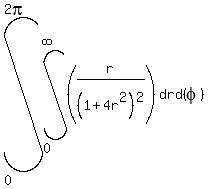 =
= 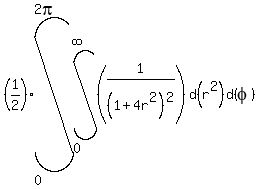 = (introduce new variable z =
= (introduce new variable z =  ) =
) =  .
The internal integral is
|
.
The internal integral is
|
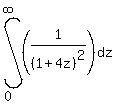 =
= 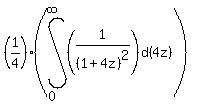 =
=  | =
| =  .
|0
Then the entire double integral (1) is
.
|0
Then the entire double integral (1) is  =
=  .
2. Now, let us start with the original integral
.
2. Now, let us start with the original integral
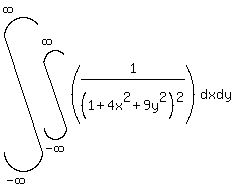 . (2)
To calculate this integral, let me introduce the new coordinate system
u = x,
v =
. (2)
To calculate this integral, let me introduce the new coordinate system
u = x,
v =  .
Then
x = u, y =
.
Then
x = u, y =  ; dx = du, dy =
; dx = du, dy =  , and the integral (2) becomes
, and the integral (2) becomes
 .
The integral of "u" and "v" after the factor
.
The integral of "u" and "v" after the factor  was just calculated in the section #1.
Hence, the final answer is
was just calculated in the section #1.
Hence, the final answer is  =
=  .
.
Answer. The integral (2) is equal to  .
.